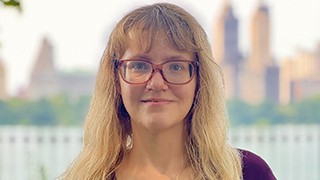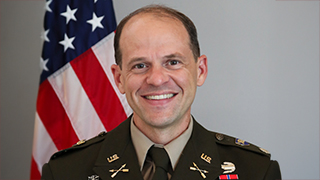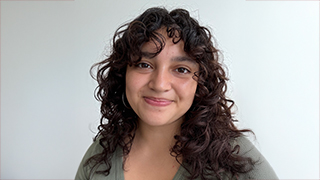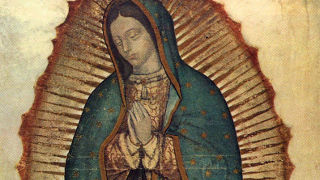From Greek Mythology to Modern Times: Kathleen Kidder, Ph.D., Connects the Classics
Wednesday, May 21, 2025
 Kathleen Kidder, visiting assistant professor, Department of Languages Literatures and Cultures, highlights that the ancient world is not as far away from the present as it seems
in her research and teaching. She connects mythology with current events, pop culture
and media, making her a popular professor for a young generation seeking meaning in
the myths — and truths — of the past.
Kathleen Kidder, visiting assistant professor, Department of Languages Literatures and Cultures, highlights that the ancient world is not as far away from the present as it seems
in her research and teaching. She connects mythology with current events, pop culture
and media, making her a popular professor for a young generation seeking meaning in
the myths — and truths — of the past.
Kidder, a specialist in Hellenistic poetry, received a B.A. from the University of Texas at Austin and a Ph.D. from the University of Cincinnati. As a scholar of ancient Greek and Roman literature, Kidder came to Seton Hall in 2024, and her work with students and her published works explore how ancient authors grappled with complex questions of humanity around truth, identity, memory and power. This level of dedication to language and understanding was evident in her dissertation and the 2023 book it evolved into, Criteria of Truth: Representations of Truth and Falsehood in Hellenistic Poetry (Harvard University Press). The text explores how ancient poets constructed and questioned notions of truth.
Kidder’s interest in the Hellenistic period, a time following the death of Alexander the Great in 323 BCE, stems from the thought equity of the poets and how they addressed contradictions in myth and used their work to reflect on political and cultural realities. “The poets of this period were scholars as much as artists,” she explains. “They were able to use the resources of the library to draw from multiple versions of myths, playing with them to create new meanings.”
Kidder looks at the character of the famous figures in these texts, such as Helen of Troy, a favorite of Kidder’s. “On the surface, she’s the cause of the Trojan War, right?” notes Kidder. “But there’s a version in Euripides’ Helen where she never went to Troy at all. A phantom did. She was in Egypt the whole time. That kind of duality fascinates me.” Noting the flexibility of the idea of myth around central figures like Helen, Kidder says, “Myth can be manipulated by societies and authors to suit different needs. It’s not static. It’s a living, changing narrative.”
In her work with Seton Hall students across Greek Civilization studies, Latin and women in antiquity, Kidder draws parallels to modern times and the state of the political world. “A lot of these stories were political,” she says. “They served propagandistic purposes. Understanding that helps students read media and politics more critically today.” Kidder also connects stereotypical archetypes to pop culture. “I encourage students to find representations of myth in today’s media,” she says. The character Amy Dunne in Gone Girl is often compared to Medea, Kidder notes. “It’s not a direct parallel, but the archetype — the powerful, vengeful woman — still exists.”
Comparisons to mythological characters and their challenges are present in television series, too. The popular, dystopian Apple TV+ show Severance, which Kidder enjoys, are easily analyzed through the same lens. “It’s essentially Plato’s Allegory of the Cave,” she says. “The characters are trapped in a reality they don’t understand, and they begin to question it. I’d love to teach that one day in Greek Civilization.”
Her students understand this way of thinking and iterate projects that connect classical literature and modern life. “I have one student right now doing a project on the role of women in political propaganda, and she’s tying it back to representations of figures like Cleopatra. That’s exactly the kind of bridge I want them to build.”
Currently, Kidder is working on research for another book, focusing on a little-known Hellenistic poem, "Alexandra" (attributed to Lycophron). The poem explores themes of violence and displacement, using mysterious language and allusions to different mythologies. “Everything is a riddle,” Kidder says. “You have to decode who’s being referenced, and I’m particularly interested in how space and landscape — rivers, prisons, caves — are used to reflect deeper narrative themes.”
Asked what advice she would offer students who are new to studying the classics, Kidder says, “Don’t be intimidated by the distance in time. The emotions, the politics, the ethical questions, they’re still here. The myths are just mirrors.”
Categories: Arts and Culture, Research





